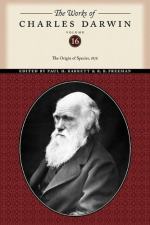It will be universally admitted that instincts are as important as corporeal structure for the welfare of each species, under its present conditions of life. Under changed conditions of life, it is at least possible that slight modifications of instinct might be profitable to a species; and if it can be shown that instincts do vary ever so little, then I can see no difficulty in natural selection preserving and continually accumulating variations of instinct to any extent that may be profitable. It is thus, as I believe, that all the most complex and wonderful instincts have originated. As modifications of corporeal structure arise from, and are increased by, use or habit, and are diminished or lost by disuse, so I do not doubt it has been with instincts. But I believe that the effects of habit are of quite subordinate importance to the effects of the natural selection of what may be called accidental variations of instincts;—that is of variations produced by the same unknown causes which produce slight deviations of bodily structure.
No complex instinct can possibly be produced through natural selection, except by the slow and gradual accumulation of numerous, slight, yet profitable, variations. Hence, as in the case of corporeal structures, we ought to find in nature, not the actual transitional gradations by which each complex instinct has been acquired—for these could be found only in the lineal ancestors of each species—but we ought to find in the collateral lines of descent some evidence of such gradations; or we ought at least




